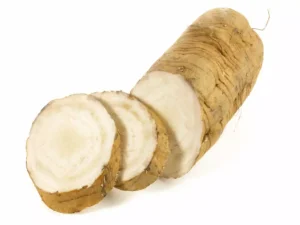
These books reveal what’s really going on for the people writing them, with room for honesty, vulnerability, grief, and questions without easy answers. When she was drunk, writer and editor Hepola was a creative force. But she was also reckless, often finding herself soberly apologizing for things she didn’t remember doing, waking up next to men she didn’t remember meeting and caring for bruises she didn’t remember getting. Subtitled “Remembering the Things I Drank to Forget,” Hepola’s debut memoir is a vulnerable story about refocusing her attention from finding her next drink to learning how to love herself without liquid enhancements. King is a writer, lawyer and NPR contributor whose memoir chronicles her decades-long downward spiral into alcoholism, from her small New England hometown to seedy restaurants where she waitressed and cockroach-ridden lofts where she lived.
The Big Chill: How to Tell People You’re Not Drinking
She is a Christian, as am I, and I often battled in my head with being a Christian and being an alcoholic. Eventually my faith brought me to my knees and I began my journey of sobriety after having a spiritual experience. Three years sober, Jowita Bydlowska celebrates the birth of her first child with a glass of champagne, and just like that, she is spiraling back into the life of drinking she thought she had escaped. Bydlowska depicts life as a new mom while under the influence with honesty and humility, discovering she can overcome the seemingly impossible for her child.
Drinking by Caroline Knapp
One hint that the author and protagonist of A Fan’s Notes (1968) are really the same person is that they are both called Frederick Exley. All these books might have been published as memoir in a less stigmatising age. Below are fifteen incredible books by drinkers who battled alcohol addiction and lived to tell the tale. Tragic, inspiring, humorous and heart-wrenching—these true accounts of the struggle for sobriety will move you and maybe inspire you to see what the sober life is all about. This is a self-help book by a licensed therapist that braids together anonymized client stories, personal narrative, psychological tools, and brain research.
Gripping Books About Alcoholism and Recovery
Knowing how to prep for surgery can help with the recovery process that follows. Ahead, see the 15 stories of struggle, failure, recovery, and grace that have moved us the most.
- It’s understandable to feel alone and like no one can relate to your addiction.
- Meanwhile solidarity and communion are often touchstones among recovering addicts.
- He showed me a path to follow, including opening a house of healing for other women.
- Burned out and scrolling Instagram late one night, she was startled alert.
- These are the books I’m reading this summer, many of them by longtime Outside contributors.
- Before his death in 2015, Carr was a beloved New York Times journalist.
1974 paints a stark and revealing portrait of a woman—and an artist—coming of age against the tumultuous backdrop of a dramatically changing America. We love it when influencers expose their vulnerabilities, but the mercurial social media world can quickly turn against them. Brianna Madia (317K @Insta and author of the bestseller Nowhere for Very Long) watches her #vanlife bubble pop when she and her ex-husband’s dog Dagwood gets run over. A GoFundMe campaign saves Dagwood’s life, but when Madia admits that it was their own van that hit the dog, she’s the one who takes the blame for not disclosing it sooner. Over the past several decades, books falling under the umbrella of “addiction memoir” have become omnipresent.
Memoirs About Alcoholism
But Ditlevsen’s single conventional moment also, I think, underlines her originality. The result was a tale whose bracing darkness is ultimately redeemed not by its perfunctorily hopeful ending but by the extraordinary force and beauty of its telling. Although I think they can all be considered addiction memoirs, and share a familial resemblance with other examples of that form, none of them feel remotely imprisoned by its conventions. And yet—even though each of these books goes its own way, never hesitating to flout a trope or trample a norm to serve its story—they don’t go in terror of the conventions either. Where the story they have to tell echoes others, they let us hear that echo. One characteristic I think I discern in the best addiction memoir is a certain humility that doesn’t strive after innovation for its own sake.

Blackout: Remembering the Things I Drank to Forget by Sarah Hepola

She further educates the reader with research and a better understanding of the psychology and physiology that drive female addiction with humor and exceptional insight. Although previous literary history had portrayed a number of addicts, only a very small number could be found outside fiction—although some well known examples were only fictional in a nominal sense. The eponymous hero of novel John Barleycorn (1913) is really its author, Jack London. Don Birnam in The Lost Weekend (1944) is really its creator, Charles R. Jackson.

Quit Like a Woman: The Radical Choice to Not Drink in a Culture Obsessed with Alcohol by Holly Whitaker
- Wurtzel reveals how drugs fueled her post-breakout period, describing with unbearable specificity how her doctor’s prescription of Ritalin, intended to help her function, only brought her down.
- This is no joyful, linear skip towards sobriety and redemption.
- What was meant to be a positive and happy change led to depression, which she self-medicated with drinking, eventually consuming over a bottle of wine a day.
- As her marriage dissolved and she struggled to find a reason to stay clean, Karr turned to Catholicism as a light at the end of the tunnel.
- Despite being published less than a year ago, Jamison’s memoir is a gritty and honest must-read.
In the tradition of Tom Wolfe’s The Bonfire of the Vanities, London Review of Books editor Andrew O’Hagan mounts a new high-meets-low social satire for the 2020s. Caledonian Road, much like Vanities in themes and also physical size, tells the rise and fall of Campbell Flynn. The respected academic and art critic finds himself embroiled in a literary scandal, chased by a Russian oligarch and then batting off a meddling student who hacks into his private best alcoholic memoirs accounts. O’Hagan is deft at incorporating much of modern life—from Bitcoin and deepfakes to Russian oligarchs’ financial foothold in London—in his Dickensian critique of society characterized by societal inequalities and capitalist hunger. London has never seemed more pulsating and alive post-pandemic thanks to this biting novel leveraging the city’s elevated cultural life with comical and luckless characters trying to survive its punishing economy.
Blackout by Sarah Hepola
This powerful book narrates his ups and downs, setbacks, and unimaginable challenges in recovery. Ultimately, Augusten tells the story of how his most difficult experiences led him to getting clean and helping others. Alcohol Explained is a spectacularly helpful https://ecosoberhouse.com/article/choosing-sobriety-gifts-10-great-ideas-to-consider/ guide on alcohol and alcoholism. Author William Porter uses the science of the brain and psychology to help you understand the effects of alcohol on your body and mind. He also offers step-by-step instructions for starting recovery and sticking with it.
